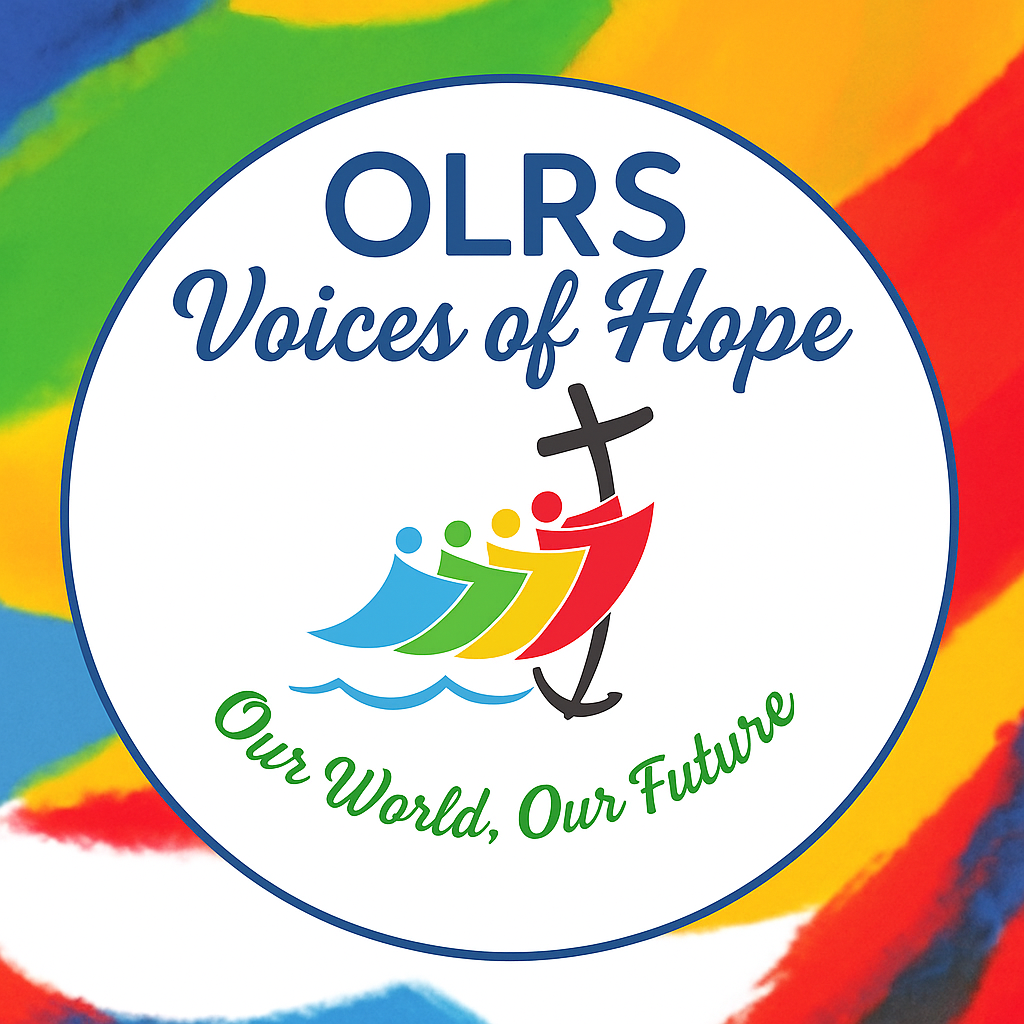Oracy at Our Lady of the Rosary

At Our Lady of the Rosary, we believe that spoken language lies at the heart of learning, thinking, and relationships. Through our commitment to high-quality oracy, we enable every child to develop the confidence, vocabulary, and communication skills needed to express their thoughts clearly, listen with respect, and engage meaningfully with others.
Our approach to oracy is rooted in the belief that every child has a voice worth hearing. We aim to create articulate, compassionate, and thoughtful speakers who can express themselves in a variety of contexts, within the classroom, across the wider school community, and in the world beyond.
A Curriculum Rich in Talk
Oracy is woven through all areas of our curriculum. Teachers plan purposeful talk opportunities that develop children’s ability to reason, explain, persuade, and reflect. Structured discussion, paired talk, and dialogic teaching are integral to lessons across every subject. Children learn not only to share their own ideas but to build on and challenge the ideas of others with courtesy and evidence.
We make deliberate links between spoken and written language so that children understand how effective talk supports reading comprehension, vocabulary development, and high-quality writing. Across the school, pupils are taught to use subject-specific vocabulary confidently, and to adapt their language for different purposes and audiences.
Opportunities to Shine
From the Early Years onwards, pupils take part in a wide range of speaking and listening experiences designed to build confidence and skill. These include:
- Debates, performances, and class presentations, giving pupils the chance to explore ideas, articulate opinions, and listen actively to others.
- Spelling Bees and Poetry Performances, which celebrate expressive, accurate, and confident communication.
- Drama, storytelling, and role play, which deepen empathy and understanding across the curriculum.
- Pupil voice opportunities, such as the Pupil Parliament, Caritas Ambassadors, and Curriculum Ambassadors, where children learn to represent others, discuss issues respectfully, and lead change.
- Class and whole-school liturgies, where children lead prayer, read scripture, and reflect aloud.
- Collective worship and assemblies, which nurture confidence and reverence in public speaking.
- The Voice of Hope oracy project across the school
Inclusive and Intentional
Our approach to oracy is inclusive and adaptive. We recognise that not all children find spoken communication easy, and we provide targeted support to ensure every pupil’s voice can be heard. This includes visual supports, structured sentence stems, pre-teaching of key vocabulary, and scaffolds that build confidence for all learners, including those with speech, language, and communication needs (SLCN).
Teachers model effective talk, explicitly teaching listening skills, turn-taking, and respectful disagreement. Through this, pupils learn that talk is a tool for learning and belonging, not just for performance.
Impact
Our focus on oracy is having a positive impact on pupils’ confidence, vocabulary, and participation across the curriculum. Pupils are beginning to use talk more purposefully to share ideas, reason aloud, and explain their thinking. Staff are continuing to refine classroom practice so that talk is planned, valued, and integrated into everyday learning. Oracy remains a key priority for continued development in our school, with a shared ambition that every pupil will grow as an articulate, confident, and thoughtful communicator.
A Community that Values Every Voice
At Our Lady of the Rosary, oracy is more than a skill - it is part of who we are. Through purposeful talk, shared reflection, and prayerful dialogue, our children grow as confident, articulate, and faith-filled communicators, ready to make a difference in the world.
KS2 Oracy Project: “Voices of Hope - Our World, Our Future”
Across Key Stage 2, pupils are taking part in our oracy project, “Voices of Hope - Our World, Our Future.” The project strengthens pupils’ ability to speak with confidence, listen with respect and communicate purposefully, while encouraging them to reflect on the kind of future they want to help shape.
The project is structured around a Key-Stage-wide journey, with each year group exploring it in a way suited to their stage of development:
Hope begins with the individual - pupils explore how their own words, choices and actions can have a positive impact on others, developing self-belief and responsibility.
Hope grows in community - pupils learn to gather and understand the hopes of both our school community and our wider local community in Staines, building empathy, active listening skills and an appreciation of diverse viewpoints.
Hope looks outward to the world - pupils use their growing oracy skills to articulate the kind of world they want to help create, practising clear, reasoned communication with a real sense of purpose.
Through performance, discussion, interviewing and public speaking, each year group takes on a project that develops their confidence, deepens their understanding of others and strengthens their ability to express themselves effectively. “Voices of Hope” empowers pupils to recognise that what they say, how they say it and why they say it can help shape a more positive future for themselves, their community and the wider world.



